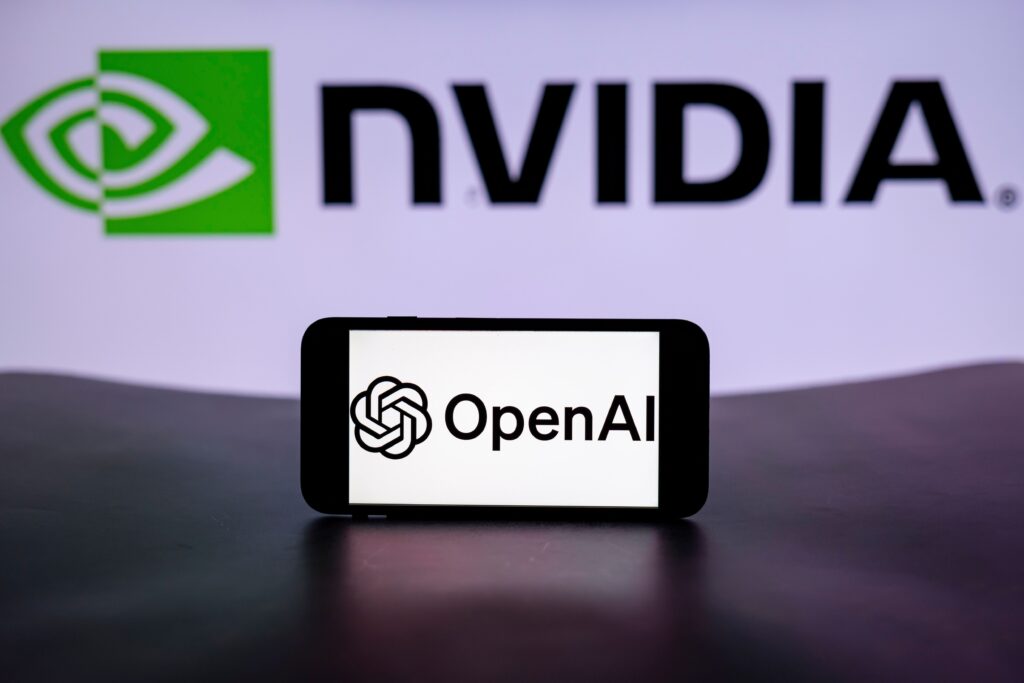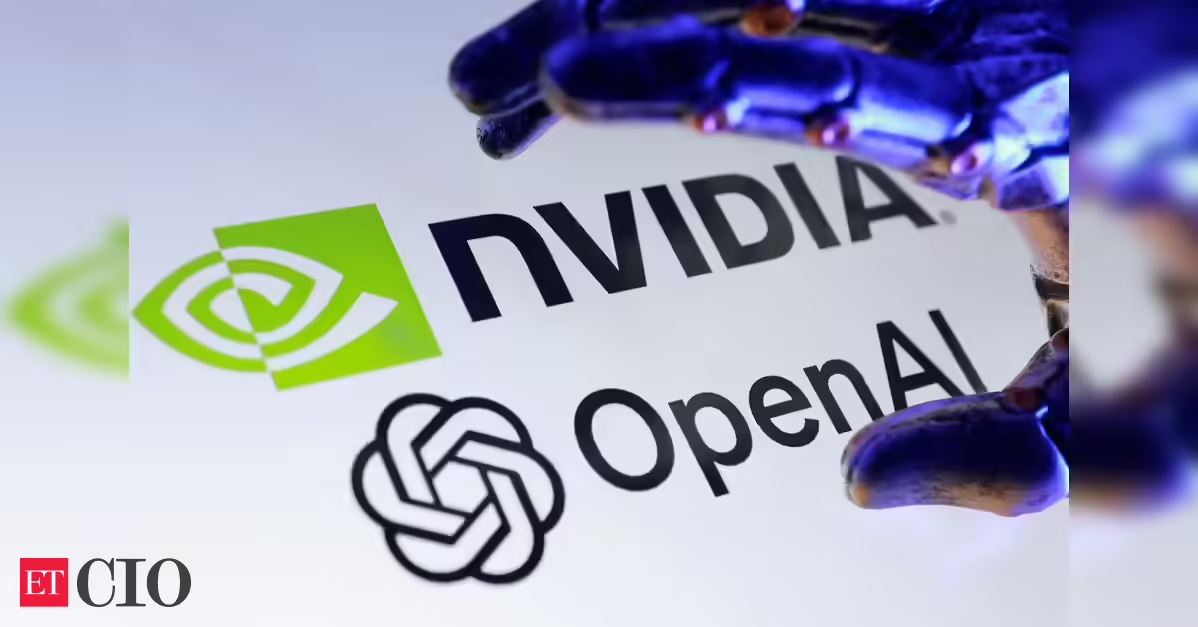Nvidia + OpenAI have signed a letter of intent for a $100B partnership that could reshape how AI systems are trained and deployed. The plan calls for at least 10 gigawatts of Nvidia hardware to support OpenAI’s next-generation AI infrastructure, which will train and run future models aimed at superintelligence.

To fund the rollout, Nvidia will invest as much as $100 billion in OpenAI as the systems are implemented. The initial phase is set to launch during the second half of 2026, driven by Nvidia’s new Vera Rubin platform.
A deal with far-reaching consequences
The deal illustrates how intertwined the biggest AI players are becoming. Nvidia, the primary provider of AI chips, would have a financial interest in OpenAI, one of its largest customers. For OpenAI, the deal means both financing and assured access to Nvidia’s highly desired processors.
The move could unsettle rivals. Some may see it as reinforcing Nvidia’s dominance in chips and OpenAI’s lead in AI software, raising questions about fair competition.
A person familiar with the matter said the partnership involves two linked steps: Nvidia will buy non-voting shares in OpenAI, and OpenAI will then use that money to purchase Nvidia chips.
OpenAI on why compute drives AI growth
Everything begins with compute,” OpenAI CEO Sam Altman has stated. “Compute infrastructure will be the foundation for the future economy, and we will leverage what we’re developing with Nvidia to both make new AI breakthroughs and bring them to empower people and businesses at scale.
The firms indicated that the terms of the deal will be finalized in the next few weeks. They further added that 10 gigawatts of chips would be as energy-hungry as over 8 million US households.
Nvidia shares rose up to 4.4% to an all-time high following the news. Oracle, involved with OpenAI, SoftBank, and Microsoft in a $500 billion international AI data centre initiative known as Stargate, gained around 6%.
How the deal is structured
Following a final agreement, OpenAI will officially buy Nvidia systems, the person said. Nvidia will then commit an initial $10 billion to OpenAI, which was valued at $500 billion last year.
The initial shipment of Nvidia hardware is due in late 2026, with one gigawatt of computing capacity going live in the second half of the year on the Vera Rubin platform.
Experts applauded the deal but expressed worries over whether part of Nvidia’s investment would make its way back to it through OpenAI chip purchases.
“On the one hand this helps OpenAI deliver on what are some very aspirational goals for compute infrastructure, and helps Nvidia ensure that that stuff gets built. On the other hand the ‘circular’ concerns have been raised in the past, and this will fuel them further,” said Stacy Rasgon, an analyst at Bernstein.
OpenAI’s other AI chip ambitions
OpenAI, as Google and Amazon, has also been investigating its own bespoke chips to cut costs and decrease reliance on Nvidia. One of the people familiar with the company stated that this transaction does not alter its current compute strategies, such as its partnership with Microsoft.
Earlier this year, Reuters had reported that OpenAI was collaborating with Broadcom and Taiwan Semiconductor Manufacturing Co. to develop chips. Broadcom shares fell 0.8% after reports of the Nvidia partnership.
OpenAI has expanded to over 700 million weekly active users, with adoption by businesses of all sizes and by developers from all over the world. The deal with Nvidia is likely to assist the company to continue efforts toward the creation of artificial general intelligence.
Industry backdrop
The OpenAI-Nvidia deal is the latest in a string of partnerships between technology giants. Microsoft has spent billions on OpenAI since 2019. Nvidia announced a chip partnership with Intel recently and committed $5 billion of funding. Nvidia was also involved in the $6.6 billion October 2024 round of OpenAI.
The size of the new deal could draw antitrust attention. Last year, the Justice Department and Federal Trade Commission reached an agreement to allow closer scrutiny of Microsoft, OpenAI, and Nvidia’s roles in the AI sector. So far, the Trump administration has taken a lighter approach than the Biden administration on competition issues.
OpenAI and Microsoft further announced last month they had entered into a non-binding deal to reorganize OpenAI as a for-profit entity, signaling additional changes in governance.
Antitrust attorney Andre Barlow of Doyle, Barlow & Mazard explained the Nvidia deal has the potential to strengthen both firms’ market positions in manners that handicap competitors.
“The deal could change the economic incentives of Nvidia and OpenAI as it could potentially lock in Nvidia’s chip monopoly with OpenAI’s software lead. It could potentially make it more difficult for Nvidia competitors like AMD in chips or OpenAI’s competitors in models to scale,” Barlow said.
He added that the Trump administration has so far taken a pro-business approach to regulation, removing barriers that could slow AI growth.
